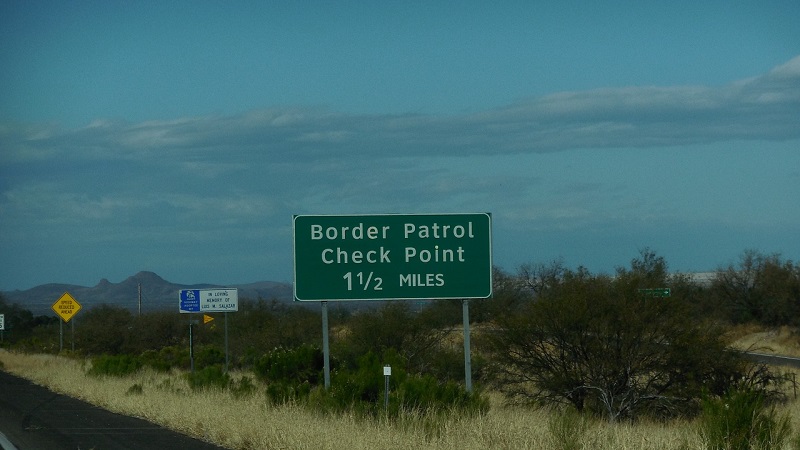The UK funds industry has been largely silent on its exposure to a trio of companies associated with US immigration camps that have increasingly courted controversy over the past year for their sub-standard treatment of largely Latin American immigrants.
Portfolio Adviser has already highlighted that Artemis global equities manager Jacob de Tusch-Lec has been building up a more than $100m position in Geo Group over the last year. Artemis did not wish to comment on its position in the controversial stock.
Other assets managers have also been reluctant to comment on their funds’ exposure to companies involved in immigration camp contracts.
Immigration camp exposure
UK-domiciled funds currently have $487.6m (£395.4m) invested in General Dynamics, The Geo Group and Corecivic, according to Morningstar data.
While that is down from the $657.7m invested in the trio of companies in July last year, Geo Group and Corecivic have suffered hits to share price over the period losing about a third and a quarter of their value respectively.
General Dynamics is marginally down over the period.
SJP, Neptune and Fidelity
The $54bn defence contractor is the company to which funds have the most exposure with $376.9m invested.
General Dynamics Information Technology, a division of the eponymous parent, admits it has profited from its casework support services for unaccompanied minors, but argued it is not involved in the construction or operation of detention facilities.
In total, 144 UK-domiciled funds are invested in the company, two more than were invested at the same point last year.
SJP North American and Neptune US Opportunities remain the funds with the largest allocations at 2.6% and 1.8% respectively.
However, the Fidelity American Special Situations fund now has a 1.5% weighting, making it the third largest UK-domiciled fund invested. The fund did not have any exposure to General Dynamics a year ago, according to Morningstar data. The Vanguard Global Balanced fund has also initiated a 1.4% position.
SJP, Fidelity and Neptune refused to comment on their exposure to the stock.
Vanguard was the only fund group to front up about its exposure to immigration camp contractors. “The immigration situation at the US border is deeply saddening, and this troubling issue needs to be solved by elected officials. We hope that policymakers come to a resolution to ensure the safety, security and dignity of these children and individuals.”
For investors wishing to avoid particular stocks altogether, the spokesperson said Vanguard offers a search tool for its holdings or can be contacted directly. It showed 24 funds with exposure to Geo Group.
‘Benefiting from human misery’
Geo Group and Corecivic are more directly involved in immigrant detention, says Morningstar director for sustainability research Jon Hale.
Regarding ethical investors’ views of the industry, Hale says: “They have come to view private prisons are contributors to the problem of mass incarceration in the US and, in the case of immigrant detention centres, as benefiting from human misery.”
UK-domiciled funds have less exposure to the small-cap companies than they do to General Dynamics although Artemis has initiated a $103.6m position in Geo Group via three funds managed by Jacob de Tusch-Lec making it one of the largest shareholders owning 4.3% of the company.
De Tusch-Lec’s funds account for the bulk of the $107.4m invested in the company via UK-domiciled funds, significantly higher than the $5.3m he had based on Morningstar data retrieved in July 2018.
Aviva Investors among those exiting positions
Aviva Investors previously held a $10.2m position but confirmed the third-party manager of the fund has since sold it. “They no longer hold the stock, as active engagement and concern from firms across the industry has led to the investment no longer being a positive fit for the portfolio,” an Aviva Investors spokesperson says.
In Q1, Wells Fargo and JP Morgan separately announced they would be divesting from the private prison industry sending Geo Group and Corecivic stock tumbling.
Geo Group told Portfolio Adviser in a statement: “The divestment efforts against our company are based on a false narrative and a deliberate mischaracterisation of our role as a long-standing government services provider.”
The spokesperson said Geo Group facilities offer “24/7 medical services, modern recreation amenities, and access to legal counsel” and that it has provided services under both Republican and Democratic administrations.
But the bulk of its shareholders would still like to see it shape up. In May, investors voted overwhelmingly in favour of the company producing a human rights report.
Avoiding private prisons
Investors with passive exposure to US large caps will have exposure to General Dynamics and are likely to have exposure to Geo Group and Corecivic if they have passive US small cap exposure, says Hale.
The Vanguard US Equity Index Fund has a 0.17% weighting in General Dynamics representing $14m and the iShares North America Equity Index fund has a 0.18% stake worth $9.6m, for example.
“The way to assure no exposure to these firms is by investing in an ethical/sustainable fund that avoids these types of companies altogether.”
But Geo Group, Corecivic and General Dynamics could still slip through negative screens applied by many responsible investors, says EQ Investors head of impact Louisiana Salge. The London-based wealth manager uses the UN Sustainable Development Goals to positively screen investments.
US sovereigns still acceptable
While ethical investors have previously shunned US sovereigns due to concerns over US military spending, Hale did not think Trump’s immigration camps warranted such an exclusion.
“US defense expenditures constitute a huge portion of the annual budget so such a significant divestment could be said to be proportional to the activity at which it is aimed.
“In this case, immigrant detention centres are a much smaller activity of the US federal government, and so divesting from such an important fixed-income asset class may not really fit the crime, so to speak.”











